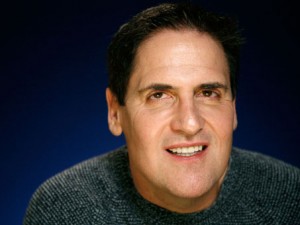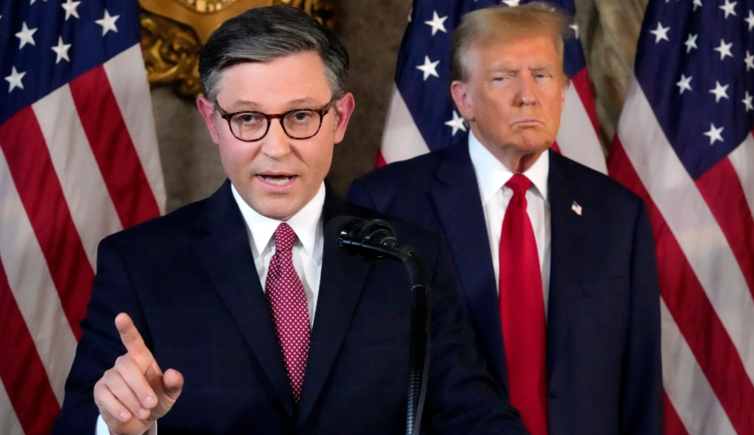(ThyBlackMan.com) Dallas Mavericks owner Mark Cuban is known for speaking his mind. I respect that, and so should you. But having the freedom to speak opens the rabbit hole of recursive action: You can say whatever you want, but people also have the right to express an opinion about your remarks.
Here is what Mark Cuban said during an interview that aired on ESPN:
“I know I’m prejudiced, and I know I’m bigoted in a lot of different ways. If I see a black kid in a hoodie on my side of the street, I’ll move to the other side of the street. If I see a white guy with a shaved head and tattoos (on the side he now is on), I’ll move back to the other side of the street. None of us have pure thoughts; we all live in glass houses.”
We thank Mark Cuban for his honesty. I am not sure if he’s going to thank me for mine. Here are a few serious problems with Mark Cuban’s remarks and why the interview was problematic in the first place::
1) Black men have the right to wear hoodies: Mark, I respect the fact that black men in hoodies scare you, I know grown men who are frightened by clowns. I also hope you’re not concluding that because you’ve admitted to your racism that this somehow makes it less painful to those of us who’ve dealt with bigotry our entire lives. I wore a hoodie to the gym this morning, and it undermines my humanity to know that being a professor in the hoodie suddenly makes me equivalent to “a white guy with a shaved head and tattoos.”
morning, and it undermines my humanity to know that being a professor in the hoodie suddenly makes me equivalent to “a white guy with a shaved head and tattoos.”
2) Stop defending Donald Sterling’s right to own the Clippers: My concern is not that Cuban expressed his inner bias. Most people have some kind of racial bias, we can agree on that. The deeper concern is that Cuban is using subtle, relatively harmless forms of bias to justify 30 years of blatant, documented and undeniable bigotry by a man who has consistently made unacceptable remarks about people of color. If Cuban wants to admit that he’s a bigot, then fine. But he shouldn’t be using this nationally-televised confession to explain why Donald Sterling is not a bad guy. One doesn’t have to be linked to the other…..unless you have an unspoken agenda.
3) Mark Cuban is comparing Apples and Oranges: There’s a huge difference between admitting to having racist thoughts and admitting to engaging in racist ACTIVITY. Also, there is a difference between saying “black men in hoodies make me want to cross the street,” and saying “I don’t want black people coming to my games.” The first comment involves a natural decision by an independent citizen to engage in self-preservation by protecting himself from those he’s profiled as criminals. The second statement represents a billionaire owner openly stating that he doesn’t want black people of all backgrounds in his physical presence, even if they are law-abiding citizens not wearing hoodies or tattoos. The first case discriminates against subgroups that you have (rightly or wrongly) identified as potential threats. The second statement discriminates against EVERYONE.
4) Sterling has the right to be openly racist, but not the right to hire black people and destroy the NBA’s brand: The NBA’s decision to get rid of Sterling is a logical business move to eliminate an owner who destroys wealth of the cooperative with words and actions that threaten to undermine the value of a multi-billion dollar brand. The Los Angeles Clippers aren’t a stand alone bakery in the north side of Chicago. They are a major sports franchise which exists as part of a broader, inter-related entity of many, many stakeholders. If Sterling has the right to say that he doesn’t want black people coming to his games, then the NBA has the right to say we don’t want bigots to be part of our organization.
5) Sterling’s recorded remarks were the tip of the iceberg, now let’s focus on the iceberg itself: OK, let’s presume that one believes that Sterling’s comments about wanting black people out of his arena are irrelevant. Even without those remarks, Sterling has a very long and frightening history of serious racial discrimination. He has kept black people from having a place to live, made their lives a living hell in the workplace and only God knows what else he’s done along the way. He even conspired with corrupt NAACP officials to thwart the ability of African Americans to speak up in situations where Sterling had violated them because they were black. Sterling should be punished for buying off the NAACP for the same reason that a citizen is punished for bribing a cop. The NAACP is, for some, a last resort to find racial justice and protection. But the NAACP in LA wasn’t protecting its citizens; they were instead giving Lifetime Achievement Awards to a man who once said that he didn’t rent to black tenants because they stink (seriously, he said that).
6) Stephen A. Smith should realize that when he defends Mark Cuban (as he did on ESPN recently), he’s indirectly defending Cuban’s ability to defend Donald Sterling (if that makes any sense). Stephen may have relationships he’s seeking to protect, or maybe he truly believes the stuff he was saying. But no matter how you slice it, Stephen A’s defense of Cuban on ESPN is
a) blaming white racial bias on black people who wear hoodies, and
b) Supporting Cuban’s quest to use his own credibility to convince us that Sterling should be let off the hook. Come on brother, are you really doing this? Not cool.
7) Why was Mark Cuban doing that interview anyway? Most celebs do interviews for a reason, whether it’s to promote a film, a book or an idea. Ever since the public went after Donald Sterling for his remarks, Cuban has consistently defended Sterling’s right to keep the team. So, by making remarks that effectively water down the devastating impact of racial bias, he is then consistently leading to the predictable conclusion that Sterling has a right to be an owner. The debate at this point is not whether or not Sterling’s remarks were despicable, and it’s not even about whether he should be punished. Instead, it is about deciding on what is an acceptable punishment and just how much power we should agree to give a man who is a proven and confirmed racist.
One fundamental fact is that if the punishment is not severe, and Sterling is kept in power, it reminds us of how little our nation cares about truly battling racism. In other words, it might just be business as usual.
Staff Writer; Dr. Boyce Watkins
Dr. Boyce Watkins is the founder of the Your Black World Coalition. For more information, please visit http://BoyceWatkins.com.




















Donald Sterling has the right to say what he think’s and we have the right not to like it. He is not breaking the law by saying what he thinks and we are not breaking the law by expressing hurt to his sponsors.
Mark Chabenisky “Cuban” is jewish. Donald Tokowitz is jewish. Are anybody surprised at jewish racism towards blacks, and the fact that they always stick together? I’m not.
Dr. Watkins I am a Black man and find nothing wrong with what Mr. Cuban or Mr. Sterling said. Why can’t a man express himself in the privacy of his own home while using a right the constitution allows him. I could be Mr. Sterling but instead of talking about blacks it would be homosexuals. Mr. Cuban is correct people who look a certain way give off different vibes. You would be lying to yourself if you said you don’t judge based off appearance. Would you hire someone for your million dollar company with better credentials than you if they had tattoos on there face with excessive piercings as well. No you would not.
What more can we ask for? We ask for honest dialogue and if we do not get the response we seek, we then go off on the person for speaking their mind? If what is said does not apply to you, why let it be a problem? Mark Cuban is an owner of a NBA team which gives him insight to how the owners not only feel about specific issues, but the players as well. Things seems to keep being blown out of proportion whether on purpose or not. Once we get knowledge of what is going on, the emphasis on action is started. For once it seems that we all get it, people are going to do things overtly or covertly as it serves their interest and if they are in power to do so why go crazy because they do so? Sterling is surely not the only one to feel the way he does, but he got exposed. You can call for the come to Jesus meeting of the minds all you want, but you can not make people do the right thing(s). Most decisions seem to be made on self serving principles, such as what am I going to get out of it. The players seem to get it as they would actually boycott the season than to allow this example of bigotry to strive.
Once all of the owners see their livihoods come to an end, is it really amazing that they can suddenly agree on removing one person? Hell, former President Clinton could explain the power of potential impeachment and how it impacts on a person’s life. Being the people’s first unofficial
Black president, he withstood all obstacles thrown his way to change for the better in the end. The thing we have to come to grips with is the fact that racism is here to stay no matter what. It is how we deal with issues that can make a difference. Even the MISTRESS showed she had no problem with making the statements public after she had been paid. No one I know would have a problem with having received 1.8 million dollars and new cars and a place to live prior to the tape being released. Now she gets press and interviews to go with her 15 minutes of fame, only to have to ask herself in the end was it worth it? Based on her critical thinking aspects she may believe she is indeed correct for being a gold digging betrayal pawn in the game of life.
If it makes her happy, who am I to judge? We all will pay the price of being accountable for our actions in the end. If we all would base living our lives based on fairness what on earth would get done? Not a damn thing, which would suit well over 90 percent of the people on this planet. What if Cuban never referenced the hoodie, the fact remains that it is part of his thought process for whatever reason sans Trayvon Martin. So now if he makes a donation to any civil rights organization, does that really change how he feels? We all need to face the reality of knowing that we all have bias within us. Some of us get caught, while others never pay the price outwardly. Even as I write this, Sterling now has had a change of heart to allow his wife to be over the selling of the team. None of this changes the fact that he will part with over 1 billion dollars in spite of being a poster child for racism. The general feeling of what Sterling stated in more widespread than we acknowledge.
A Chief of Police in New Hsmpshire has resigned from his job after name calling Obama in the form of using the N word. Just because he steps down is not going to change the way he actually feels. Now if you want feels action, let him and Sterling give back any profits that they made while being racists as to make a lasting statement of true repentence. Hold your breathe and quietly die as it is not going to happen in this lifetime. LOL. Peace out, Papacool.
@FORD
I believe as you do that we are all brothers and sisters under the skin ; I was trying to explain that we live in a society where the best tea wins and that should work toward that goal but not to exclude anyone or at the expense of anyone
…Robert I do believe we are the same as color is only skin deep. We can align ourselves with or against others for many valid reasons but to use skin color subtracts our ability to think and reason as humans.
OUR biggest disadvantage in this country is our lack of knowledge of others who we share the same society with this is important because we live in a world that is ruled by teams.
WE actually tried to live in this land and believe that we are all the same and there is no difference between us; although that sounds great it;s just not reality and besides we’re the only who believe this.
LET’S make this a year of revelation and start by identifying everyone around us so that we can start making intelligent decisions instead of all this guessing and hoping.
IF we know who these people are things will become less mysterious; please read the articles below and let’s see what MARC CUBAN is actually doing.
http://forward.com/articles/198752/mark-cuban-sorry-for-trayvon-martin-hoodie-remark/?
http://forward.com/articles/197643/why-are-so-many-pro-basketball-owners-jewish-like/?p=all
http://radaronline.com/exclusives/2014/04/donald-sterling-v-stiviano-los-angeles-clippers-basketball-sex-naacp/